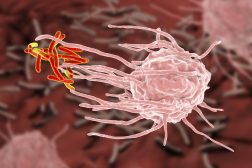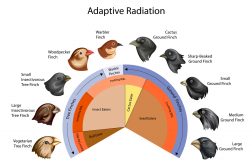Definition
noun
(1) The capacity of a molecule or an antigen to induce an immune response, that is to be recognized by and interact with an immunologically specific antibody or T-cell receptor.
(2) The measure of the ability of a substance to produce immunity.
Supplement
Related terms: antigen.
See also: immune response.
Dictionary > Antigenicity
You will also like...

Respiration
The human respiratory system is an efficient system of inspiring and expiring respiratory gases. This tutorial provides ..

Sensory Systems
A sensory system is a part of the nervous system consisting of sensory receptors that receive stimuli from the internal ..

Biological Cell Defense
Organisms employ different strategies to boost its defenses against antigens. Humans have an immune system to combat pat..

Fish
The sea was teeming with life. Eventually, through reproduction and continued variation, fish came about. There are over..

Human Reproduction
Humans are capable of only one mode of reproduction, i.e. sexual reproduction. Haploid sex cells (gametes) are produced ..

Adaptive Radiation
The diversification of several new species from a recent ancestral source, each adapted to utilize or occupy a vacant ad..

